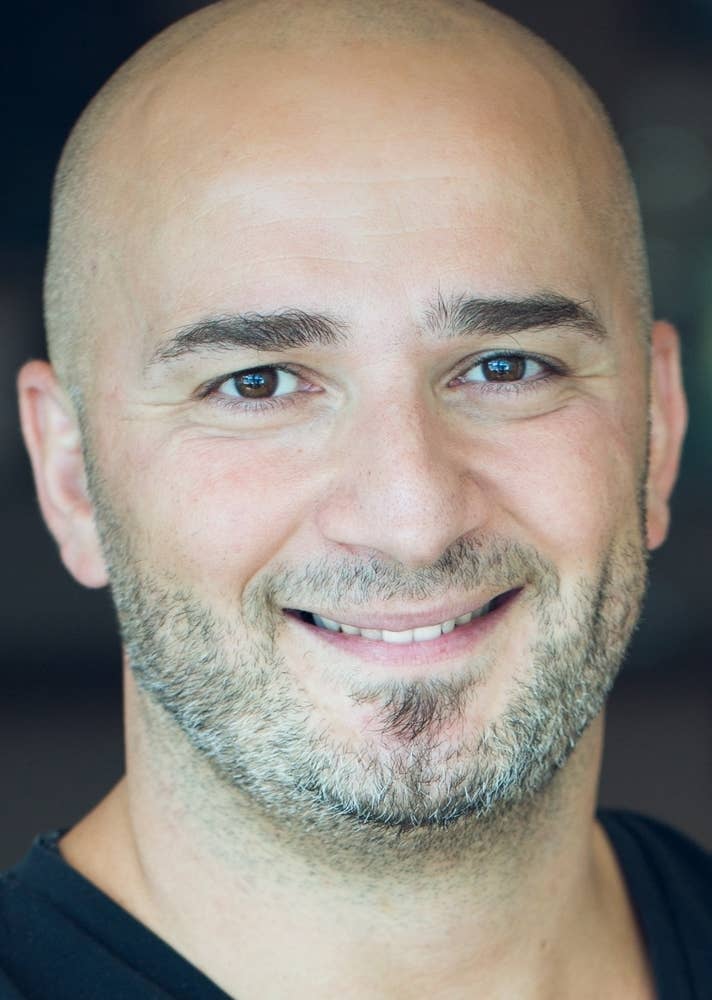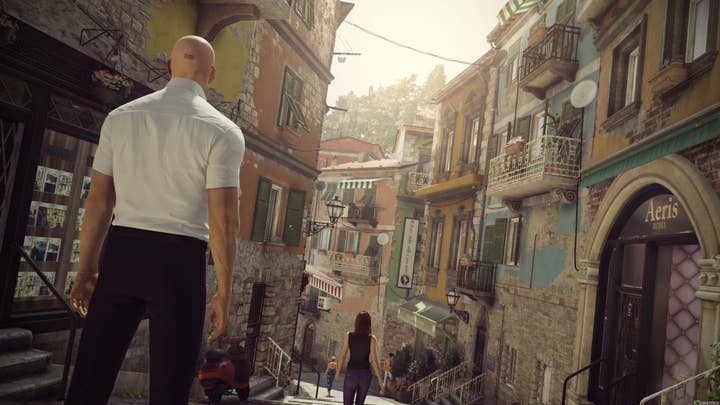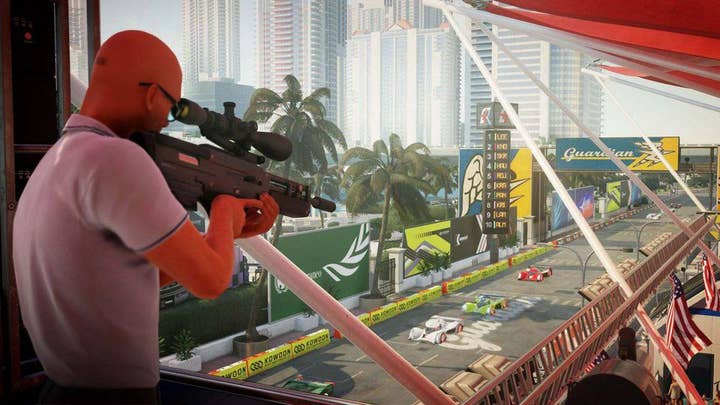How IO Interactive realised its full vision for Hitman's World of Assassination trilogy | GI Live Online
CEO Hakan Abrak discusses surviving the split from Square Enix and the journey to full ownership and self-publishing
Much like Agent 47's assignments, IO Interactive's journey to completing the Hitman trilogy has been anything but straightforward.
The World of Assassination began first through episodic instalments in the 2016 reboot of Hitman -- before the studio became independent -- and continued the series by partnering with Warner Bros, which published Hitman 2 in 2018. IO Interactive finally concluded the trilogy earlier this year with Hitman 3, this time completely on its own terms as its own publisher.
"If we look at Hitman 3 from a commercial perspective, compared to Hitman 2016 and Hitman 2, it's been 300% better commercially," IO Interactive's CEO Hakan Abrak told us during this month's GI Live: Online event. The interview was conducted by our own Chris Dring, and you can watch the whole session below.
"And if we look at it critically, this is also the highest rated game between the three of them. This, despite the conditions in these corona times, that we've developed this and then delivered this -- we're extremely grateful and extremely proud at the moment."

While the success has been a vindication for the studio, this hadn't been a certainty. The first game's episodic format did not succeed commercially, leading to Square Enix to divest funding from IO Interactive and look for potential buyers. After several job cuts, IO Interactive announced it would perform a management buyout in order to become independent but also retain the rights to the Hitman franchise in order to continue its vision with the series.
"We were running on the belief that the best years and the best chapters of IO's history was not the 20 years we had left behind, they were in front of us. That's the belief we had," says Abrak.
But this didn't mean that self-publishing was necessarily the end goal in mind. Indeed, having secured its future as an independent studio after the buyout, the immediate focus was just to survive.
"The first six months wasn't about grand plans of independence or conquering the world," Abrak continues. "I want to be completely honest about this, we literally had three months' cash flow before we had to close shop when we went independent. We knew that we were taking a huge risk, and that this face, together with the rest of the owners, would be on the news of closing down a 20-year old studio if we didn't turn things around very quickly."
Fortunately, with all profits of Hitman 2016 going directly to IO Interactive thereafter, sales went above expectations to keep the studio afloat without having to resort to selling or having a minority or majority owners that divert from the direction it had its sights on: completing the World of Assassination trilogy. Despite the numbered entries, the overarching plan was that this was always intended to be an overarching connected story across three games -- indeed, Hitman 2016 was also initially referred to as Season 1.
"We literally had three months' cash flow before we had to close shop when we went independent"
"I think not many people know this, but Hitman 2016 was supposed to be one ever-expanding live product, just like an MMO, where you would have this one executable," explains Abrak. "So Hitman 2 and 3 would just expand within this World of Assassination, that was the vision. So you can buy Hitman 1 and 2 and unlock them from within Hitman 3 from the menu. Hitman 1 starts with Paris and in the menu it's already there, all the way to the last location in Hitman 3."
Even though that vision was realised by the time Hitman 3 released, cashflow problems ultimately prevented IO Interactive from taking the self-publishing route immediately, which led to Warner Bros releasing Hitman 2 in November 2018.
"I was personally really trying to get it out of that window and tried to ship it in January, and honestly I think it would have been better if we had launched in January 2019," says Abrak. "There are a lot of big blockbuster games releasing in November, and this was just shortly after Red Dead Redemption 2, which obviously had an impact on our sales."
Something as simple as being able to decide on a release date was therefore an important factor for self-publishing by the time the studio came around to Hitman 3, when the sales of the first two instalments made it possible for IO Interactive to find the cashflow and financing to go it alone -- although an alternative would have been to release Hitman 3 episodically, as with Hitman 2016.

Another reason for self-publishing was that the process would be, as Abrak describes it, "unfiltered".
"With that, I mean the things that we create here, and the communication of it or the marketing and the creation of the levels itself, it's all connected and holistic," he continues. "We don't have to translate that to a different unit overseas. There's also an unfiltered feeling that it's from the devs directly to the gamers and fans, it's been very effective for us."
Thirdly, it also meant that IO Interactive was essentially taking full control of its destiny, come what may. "It's really one-to-one when you're publishing it yourself. You really feel the hopes and dreams of the people here, what they hope for this product, but to take responsibility for that as a publisher as well," says Abrak.
"Since Hitman 2016, we've been delivering new content on a weekly basis. So our publishing and operation muscles have been trained for five years now"
"What I mean is you completely own up to your successes and your mistakes. There's no one else to blame or to point fingers at. It's been incredibly fulfilling to take complete responsibility for things, to know that if you do something right or wrong, there's no one else to look at -- it's us. And that just gave us another motivation."
While there are some considerable changes and challenges to go from a developer to also a publisher, requiring training for existing staff as well as hiring new talent, Abrak believed IO was already well equipped even when it was part of Square Enix.
"We have always been very involved, we have always been like an independent operated studio within Square Enix," he continues. "So we've had a lot of these groups and functionalities, people with expertise on working with the platforms, account managers, uploading builds, testing, so we've had a lot of this expertise. We've done a lot of that, because obviously throughout the Hitman trilogy, while it is a single-player game, it's also a live platform. There are live events happening, so since Hitman 2016 we've been delivering new content on a weekly basis and updating the game. So our publishing muscles, or operation muscles, have been trained for five years now."
The real challenge has not only been self-publishing Hitman 3 for simultaneous release across 10 different platforms of different generations -- including a cloud version for Switch, something Nintendo had approached IO for fairly late into development -- but also ensuring that owners of the previous instalments could also experience them with the new features in one complete coherent package that the World of Assassination had been envisioned.
Evidently, compromises and different publishers had meant complications with the game's backend, which resulted in issues at launch when players were reporting issues with being able to import the content of the first two games into Hitman 3 without being forced to buy them again.
"I'm not going to defend it by saying that it's a challenging thing to release a game, but I think we could have definitely double checked," Abrak admits. "We should have maybe started a bit more support with external partners to help with the inflow of inquiries and issues that was linked to this. I think in some cases we were a bit slow to react quickly enough to people to assure them that this is being worked on."

For one platform holder, the technical issue stemmed from a different publishing ID in the back end, requiring IO Interactive to basically create a new publishing ID so that Hitman 1 and 2 could be unlocked in Hitman 3 as one executable.
"We had to jump through hoops and learn things, and sometimes it was like, 'Can this really be true?'," explains Abrak. "We had to learn how to communicate and where to push the platform holders. Like, 'This is awesome for you as well if you can have this functionality.' On the other hand, there are some things we shouldn't ask for because it's too complex and they have obviously trillions of other clients."
"Compared to Hitman 2016 and Hitman 2, Hitman 3 has been 300% better commercially"
Besides these specific issues with Hitman 3, becoming a publisher also meant understanding how to position your products on the digital stores. "We released the Free Starter Pack, where we had the tutorial, and then some locations around Easter or Christmas we could offer for free," says Abrak. "We also had to learn about algorithms, how you can stay relevant on the digital stores, to get insights into what works and what doesn't, using our relationship with account managers and just asking the right questions and getting feedback. So there are a lot of practical things, and very impactful things like that that we have to learn, which was with Square Enix before, that we had to tackle."
Besides the operational and development side, it was also important to understand the commercial side so that the studio could analyse the data and see what worked, what didn't, how engaged players were with a mode or feature. Of course, as an essentially live game being updated every week with new contracts or challenges like the Escalation assignments or Elusive Targets, IO has been in a better position to understand its player base.
Arriving at this point as an independent self-publishing studio, IO Interactive has finally reaped its rewards. Even with those bumpy launch issues regarding past content, Hitman 3 nonetheless received critical acclaim exceeding the previous instalments, a fine way to end a trilogy. Its strong sales, leading the retail version to the top of the UK games chart at launch, was no doubt bolstered by the January release date.
"It turned out to be great timing," says Abrak. "Actually, a Hitman game has never recouped its complete development costs in the first week, which we did for this one, which was absolutely amazing."
But while IO Interactive has confirmed it will also be self-publishing its upcoming 007 title, and indeed has plans to publish games from other developers, Abrak's also not ruling out partnering with another publisher in the future.
"We're just looking at our future where it's not rigid, it's much more open, which I think is exciting," he says. "I think there are many many different models in the future and I think everybody developing their game passionately should also think about how they want to publish or who they want to publish it with passionately. It shouldn't be just like a business transaction, it should also be about cultural fit, mentality, and ethics."
Indeed, the more the merrier, as he's welcoming of more studios to take up self-publishing.
"It's a different industry today than it was five to ten years ago and I think the opportunities are there to do this as well if it's the right thing for you. I think that's great for everyone, great for competition, great for expressing yourself more precisely and working with people who are compatible with you closer."
You can watch the full interview below, in which Abrak also announced the opening of a new Barcelona studio.


